NewsBeat
Macron to name new French PM on Friday in bid to restore stability
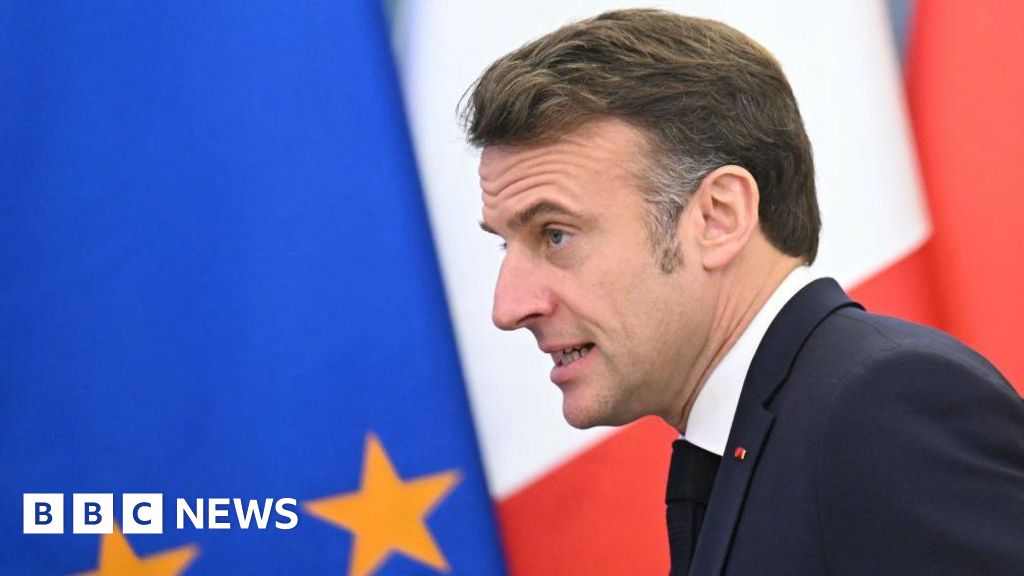
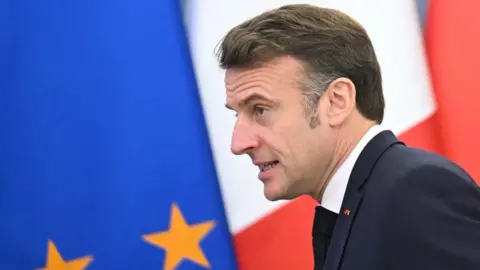 SERGEI GAPON/AFP
SERGEI GAPON/AFPPresident Emmanuel Macron will wait until Friday before announcing his choice for France’s next prime minister, according to the Elysée palace, in a bid to end months of political turmoil.
Eight days after French MPs ousted Michel Barnier as prime minister in a no-confidence vote, Macron cut short a visit to Poland on Thursday and had been expected to come up with a new name on his return.
But after landing at Villacoublay airbase near Paris, his entourage said a statement would not come until Friday morning.
French politics has been deadlocked ever since Macron called snap parliamentary elections during the summer, and when he does name a new prime minister, it will be his fourth this year.
An opinion poll for BFMTV on Thursday suggested 61% of French voters were worried by the political situation.
Although Macron had indicated a decision would be made by the end of Thursday, followers of French politics have become used to the president’s desire to act as maître des horloges – master of the clocks.
Macron has vowed to remain in office until his second term ends in 2027, despite Barnier’s downfall last week.
He has already held round-table talks with leaders from all the main political parties, bar the far-left France Unbowed (LFI) of Jean-Luc Mélenchon and far-right National Rally of Marine Le Pen.
He needs to form a government that will not be brought down the way Barnier’s was in the National Assembly.
It is thought he will either seek to bring parties from the centre left into the government, or agree a pact so they do not oust the next prime minister as well.
The former Brexit negotiator was voted out when Le Pen’s National Rally joined left-wing MPs in rejecting his plans for €60bn (£50bn) in tax cuts and spending rises. He was seeking to cut France’s budget deficit, which is set to hit 6.1% of economic output (GDP) this year.
Among the favourites to replace Barnier, who lasted only three months as prime minister, were centrist MoDem leader François Bayrou, Defence Minister Sebastien Lecornu and centre-left ex-prime minister Bernard Cazeneuve.
Under the political system of France’s Fifth Republic, the president is elected for five years and then appoints a prime minister whose choice of cabinet is then appointed by the president.
Unusually, President Macron called snap elections for parliament over the summer after poor results in the EU elections in June. The outcome left France in political stalemate, with three large political blocs made up of the left, centre and far right.
Eventually he chose Michel Barnier to form a minority government reliant on Marine Le Pen’s National Rally for its survival. But now that has fallen, Macron is hoping to restore stability without depending on her party.
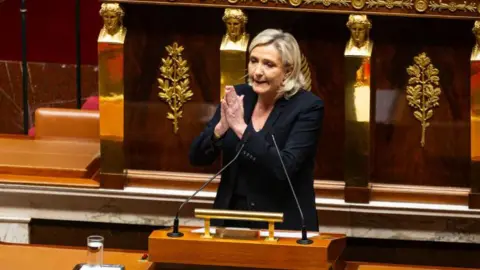 Getty Images
Getty ImagesThree centre-left parties – the Socialists, Greens and Communists – have broken ranks with the more radical left LFI and have taken part in talks on forming a new government.
However, they have made clear they want to see a leftist prime minister of their choice if they are going to join a broad-based government.
“I told you I wanted someone from the left and the Greens and I think Mr Bayrou isn’t one or the other,” Greens leader Marine Tondelier told French TV on Thursday, adding that she did not see how the centrist camp that lost parliamentary elections could hold the post of prime minister and maintain the same policies.
However, she also said she was not in favour of Bernard Cazeneuve, even though he was a Socialist: “The only times he’s talked about us was to criticise us. He can’t represent us.”
Relations between the centre left and the radical LFI of Jean-Luc Mélenchon appear to have broken down over the three parties’ decision to pursue talks with President Macron.
After the LFI leader called on his former allies to steer clear of a coalition deal, Olivier Faure of the Socialists told French TV that “the more Mélenchon shouts the less he’s heard”.
Meanwhile, Marine Le Pen has called for her party’s policies on the cost of living to be taken into account by the incoming government, by building a budget that “doesn’t cross each party’s red lines”.
Michel Barnier’s caretaker government has put forward a bill to enable the provisions of the 2024 budget to continue into next year. But a replacement budget for 2025 will have to be approved once the next government takes office.
NewsBeat
The most iconic moments from series three

Spoiler alert! – This video reveals details about the latest series of The Traitors.
Series three of the BBC’s hit show The Traitors comes to a close tonight, with just five contestants left in the running to bank the prize money.
In the final episode we will find out if ‘The Seer’ used their power to their advantage, and if a faithful or a traitor prevailed.
After keeping viewers on the edge of their seats for weeks, take a look at some of this series’ most iconic moments – from Charlotte’s fake Welsh accent, to Linda’s conspicuous head turn.
Video produced by Sophie Bott
NewsBeat
Harry v The tabloids. What next, if anything?
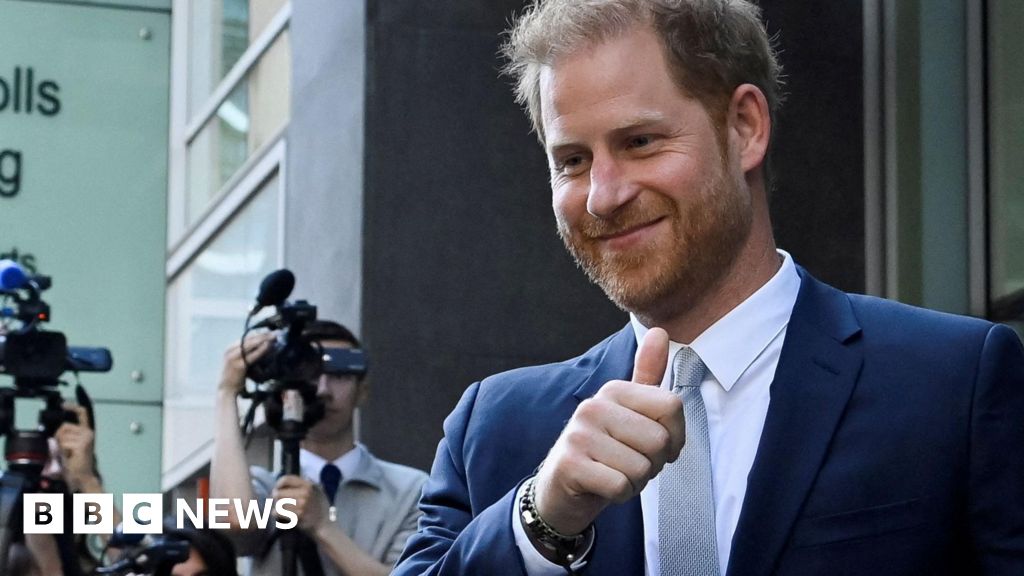
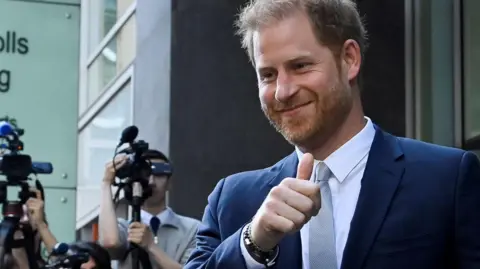 Reuters
ReutersDid the hero Prince slay the tabloid dragon? Or to quote one of its most memorable headlines, was it The Sun Wot Won It?
The dust is still settling on the settlement of Prince Harry’s epic legal battle against News Group Newspapers.
Had the trial gone ahead, Prince Harry would have alleged he had been the victim of unlawful newsgathering by NGN journalists between 1996 and 2011 – and that its leaders covered up wrongdoing by destroying evidence – something that the company denied. But the eight-week trial didn’t happen because the two sides suddenly settled.
He’s scored an apology for intrusion by The Sun, including NGN accepting that there was unlawful information gathering by private investigators working for the newspaper.
NGN has not admitted unlawful activity by journalists or editors – and the settlement means a judge won’t now have to decide if there was, as the Duke’s team alleges, a corporate cover-up of wrongdoing – a claim NGN vehemently denied and said it would fight at trial.
The space between those positions, in which both sides will feel they won something, is now the battleground.
The question is how far, realistically, can a campaign around historical events go? Is this week a reboot of investigations or, in fact, the final chapter?
The main focus of pressure and lobbying will be the police – because campaigners believe Scotland Yard didn’t go far enough in its previous investigations, missing opportunities to widen its focus beyond wrongdoing at The News of the World.
‘Dossier’ being prepared
Speaking to the BBC on Friday, actor Hugh Grant – who said the financial risks forced him to settle, with The Sun’s owners last year – said the police’s job was not done “by any means” – and suing the newspapers was never going to get at the full truth.
So all eyes will be on Lord Tom Watson, the former Labour deputy leader, who NGN admits was placed under surveillance by News of the World journalists in 2009.
The last remaining claimant alongside Prince Harry, he says a dossier will go to the Metropolitan Police.
The Met for its part says there is no active criminal investigation into alleged newspaper wrongdoing.
That statement also means there’s no current probe into the separate Mirror Group titles, despite a judge ruling in 2023 that they had used phone hacking to get information on Prince Harry.
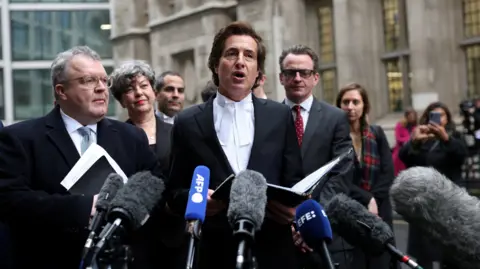 Reuters
ReutersSo why no investigation?
The police aren’t ruling one out, but Sir Mark Rowley, the Met’s commissioner, told LBC radio on Friday that they would need to see something “radically new”.
And that’s because Scotland Yard takes the view that it carried out a huge investigation 10 years ago.
Team Harry believe this is profoundly myopic. While some of their planned evidence for the NGN trial had come from the police, his lawyers also obtained new documents from NGN itself under rules for a fair trial.
Could that be new evidence? Let’s take the example of the records of the myriad of payments to private investigators.
Team Harry and Watson would have sought to prove at a trial that many were for unlawful activity. On one level you can see that would arguably fit a test of something radically new.
But, in its defence, News Group would have argued that none of this proved journalists or anyone else at the Sun knew information was being unlawfully gathered – far short of a whiff of a criminal enterprise.
What this single episode we had been expecting to see at the trial shows is how each allegation against NGN would have been fought rather than conceded. And if the police knock on the company’s door with its truncheon, they are likely to face a similarly robust response.
And that’s why the thrust of Lord Watson’s promised dossier to the police will become important. It will have to say something really big. And in the absence of a court finding – that challenge becomes larger still.
Other bodies could in theory act. Parliament’s Culture, Media and Sport Select Committee investigated phone-hacking allegations in 2011. It’s likely to face calls to review the evidence of NGN CEO Rebekah Brooks and others – evidence that NGN will stand by because there’s been no finding in court of unlawful activity by journalists, editors or executives.
There’s also the Information Commissioner’s Office. It had a role in the origins of this story, investigating privacy and data breaches by private investigators. The ICO says it has no plans to reopen or review this investigation.
The government has already ruled out launching “Leveson 2”, the second leg of the public inquiry promised by David Cameron. It was meant to investigate “unlawful or improper conduct” across tabloids and whether the police, put simply, had turned a blind eye to it because they had been corrupted by getting too close to journalists who may have been paying them off. But it never happened.
Labour in government won’t revisit it because too much time has passed.
Politics
Nigel Farage says he’s ready to be next PM and vows to save ‘miserable’ Britain as Reform UK snatch lead in shock poll: ‘You bet your life!’
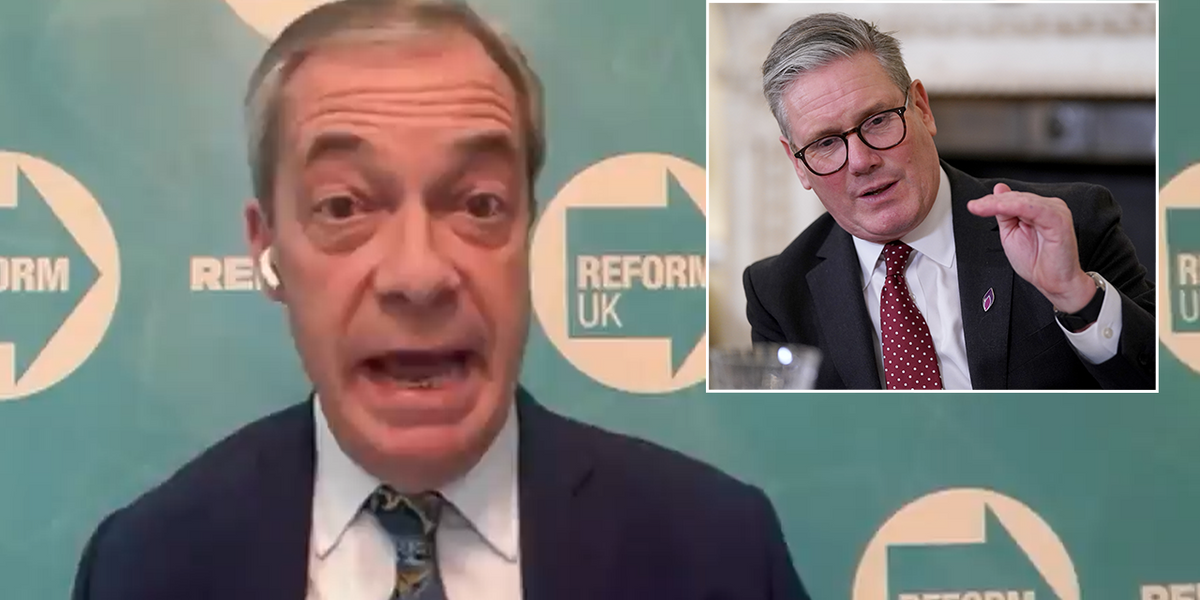
Reform UK leader Nigel Farage says he is ready to become the next Prime Minister of Great Britain after a new poll put his party ahead of Labour and the Conservatives.
Speaking on GB News, Nigel said the country is engulfed by a ‘miserable’ atmosphere, a stark contrast to what we are seeing across the pond.
This is a breaking story, more to follow.
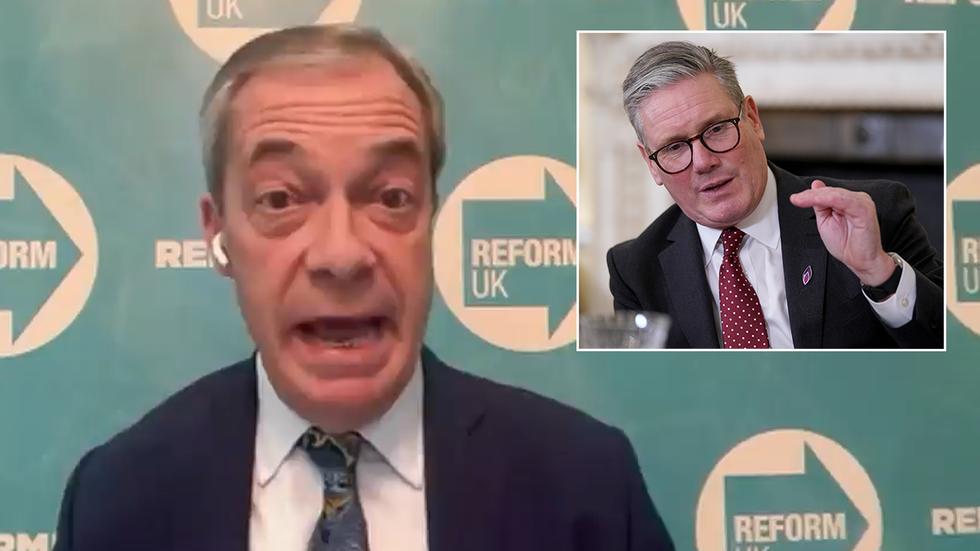
Farage says the British public has lost faith in the ‘uniparty’
GB NEWS / PA
Politics
MPs Push for More Time to Debate Voting Reform
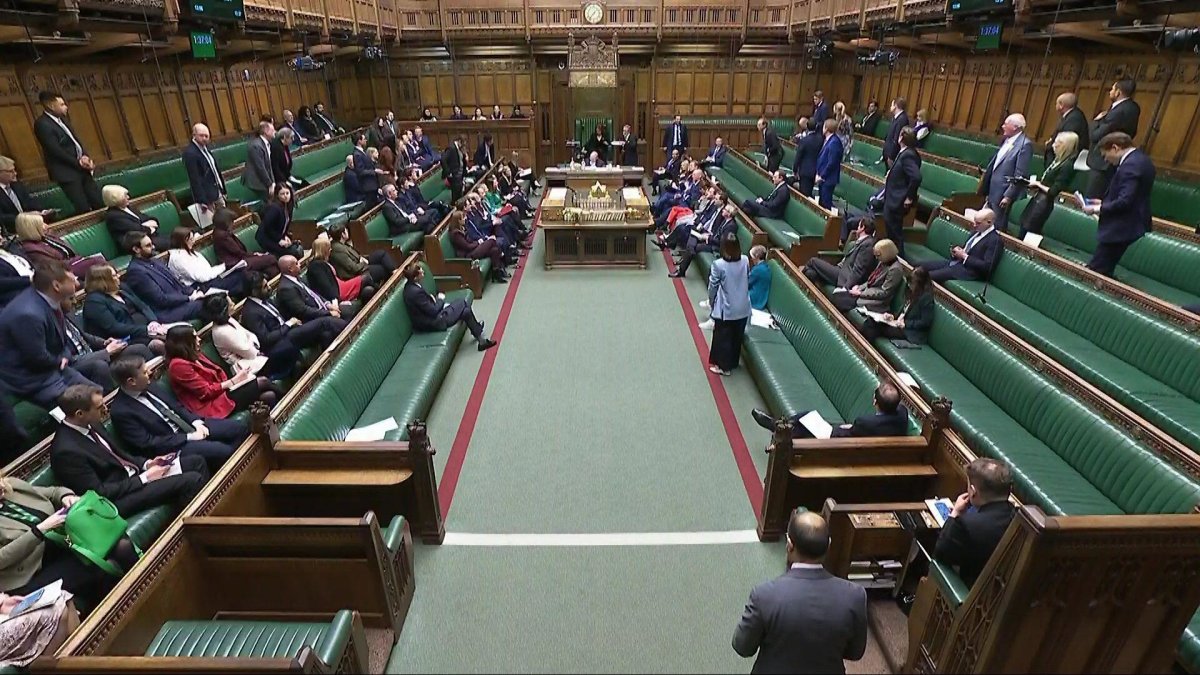

(Alamy)
3 min read
The Lib Dems have urged the Government to provide them with more time to debate Parliamentary reform as momentum builds to change the UK’s voting system.
The Elections (Proportional Representation) Bill won a vote in the House of Commons during its first reading in December by 138 votes to 136. It narrowly passed with the support of 59 Labour MPs.
It was the first time MPs had endorsed replacing the current First-Past-The-Post (FPTP) for Proportional Representation (PR).
A minority of private members’ bills become law, because they are put forward by backbenchers and not the Government. They face competition from other MPs’ private members bills and may never receive a second reading.
Sarah Olney, Lib Dem MP for Richmond Park, said the Labour Government should “finally listen to the public” and give the Bill the time it needs to be scrutinised and debated in the chamber.
“Winning a vote in Parliament on proportional representation was a victory for democracy and for members of the public everywhere. They deserve their rightful say and for their vote to count,” she said.
“It’s long been clear that First Past the Post is not fit for purpose. The 2024 election was the most disproportionate in history, with a government winning two-thirds of the seats on one-third of the vote.
“The Labour Government needs to finally listen to the public, and give my Bill the time and support it needs to progress through Parliament and into law. Anything less would be an insult to everyone whose vote was effectively wasted at the last General Election.”
Keir Starmer is open to electoral reform having promised to give 16-year-olds the vote at the next election in his party’s manifesto in 2024.
The Prime Minister came under renewed pressure from his own party in November when Labour MPs joined a parliamentary group calling for the UK to move to a proportional voting system.
Many Labour MPs and activists are sympathetic to electoral reform, after a motion to commit the party to proportional representation passed at its 2022 conference.
However, the Prime Minister’s team have ruled out any action or commitment for the first term of a Labour government.
The UK held a referendum in 2011 on whether Westminster elections should use Alternative Voting (AV), where voters rank candidates in order of preference.
The ‘No’ to AV campaign won more than two-thirds of the vote with a turnout of 42 per cent.
Research from YouGov has found voters 48 per cent of respondents are in favour of adopting proportional representation, compared to 24 per cent who oppose it and 29 per cent who are unsure.
At the last election Labour won the second largest majority in political history after it secured 412 seats with 33.8 per cent of the vote.
If the voting system was based on PR, instead of FPTP, Labour would have only won 228 seats.
The Conservatives would have gained 139 seats while Reform would have won 100, the Lib Dems 73 and the Greens 71.
The Government was approached for comment.
PoliticsHome Newsletters
PoliticsHome provides the most comprehensive coverage of UK politics anywhere on the web, offering high quality original reporting and analysis: Subscribe
NewsBeat
Ange Postecoglou: Tottenham injuries to blame for poor form
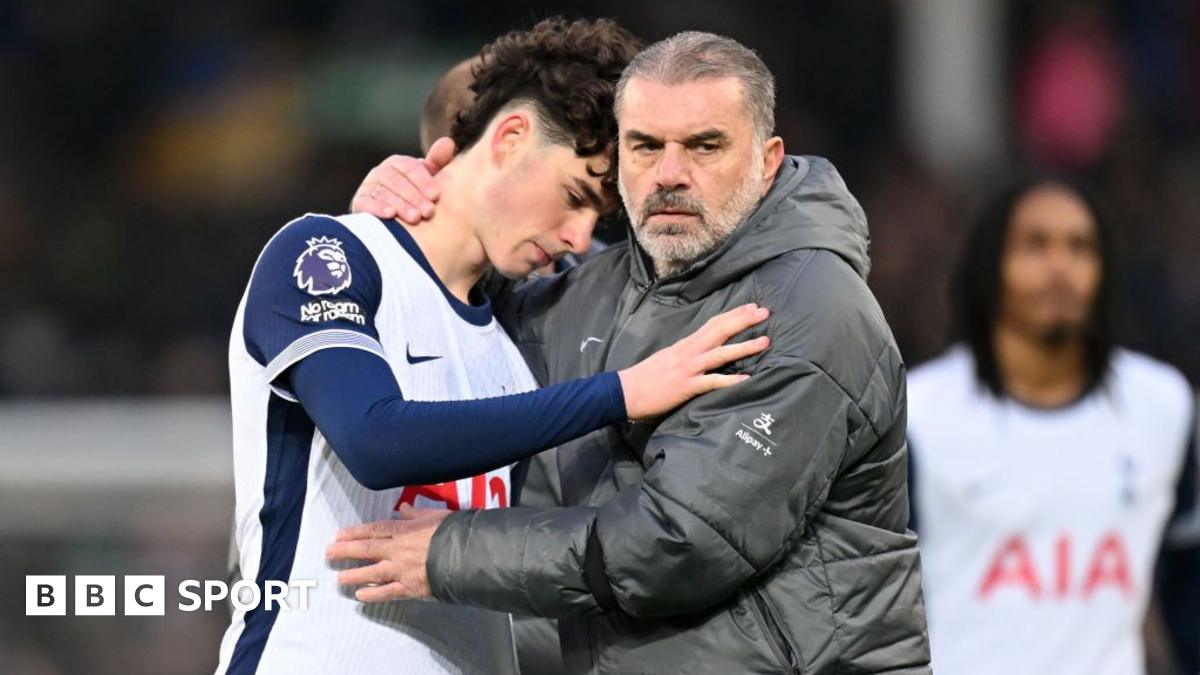
Tottenham head coach Ange Postecoglou says the club are in a stronger position than when he took charge 18 months ago, despite their poor form this season.
Spurs have won just one of their past 10 Premier League matches, which has seen the club drop to 15th in the table.
Injuries have blighted Spurs’ campaign, with key players such as Micky van de Ven, Cristian Romero and Destiny Udogie missing large chunks of the season.
The Australian’s training methods and style of play have come under question given the number of muscle injuries sustained at the club this term.
Asked why his second season in charge had been more difficult, Postecoglou said: “It’s just injuries.
“I mean you can walk outside and say, ‘Jeez it’s really bright’, and say to yourself maybe it’s not the sun. But it is the sun, mate, we’ve just got injuries.
“Every decision that is made is from me.
“I am responsible for this. If you want a head on a stick, take mine, but I am absolutely 100% confident that we are in a better place as a football club today than when I started.”
NewsBeat
Cardiff: Watchdog probes police chase before fatal crash | UK News


The police watchdog has started an investigation into a police chase, which began minutes before a fatal crash.
The collision happened in the early hours of Thursday 9 January 2025 on the Junction 30 eastbound exit slip road of the M4 in Cardiff.
The Independent Office for Police Conduct (IOPC) has now launched an independent investigation into the involvement of South Wales Police.
Modecai Juma, 51, had previously failed to stop for officers, and a police pursuit began at 3.24am, the IOPC said in a statement.
The watchdog said it was notified by the force as officers had been pursuing Mr Juma’s Honda Accord at the time of the incident.
Mr Juma was travelling eastbound on the M4 and the crash happened at 3.30am after he took the exit lane towards Cardiff Gate.
He received medical assistance by officers but Mr Juma died at the scene just after 4am.
The IOPC’s initial investigation has established that the driver of the Honda Accord was reported for failing to stop for police at 1.42am, and police had concerns about the way in which the car was being driven.
Shortly after 3am, officers were alerted to the vehicle again and a police pursuit was authorised.
The IOPC’s deputy director of investigations, Catherine Bates, said the watchdog’s thoughts were with Mr Juma’s family and it would “continue to update them” as its enquiries progressed.
“While our investigation is in the early stages, investigators have already conducted CCTV enquiries and have obtained initial accounts from the officers involved,” she added.
Read more from Sky News:
Grandson of pie company tycoon jailed for friend’s murder
Mum jailed after four sons died in house fire
A spokesperson for South Wales Police said the force “made a referral to the Independent Office for Police Conduct as is normal procedure following such incidents”.
In a statement at the time of the collision, a spokesperson said the driver’s family would receive support from specialist family liaison officers.
A post-mortem has been carried out and an inquest was opened and adjourned at Pontypridd Coroner’s Court on Friday.
NewsBeat
Man arrested on suspicion of murder after 75-year-old stabbed to death in Putney in London
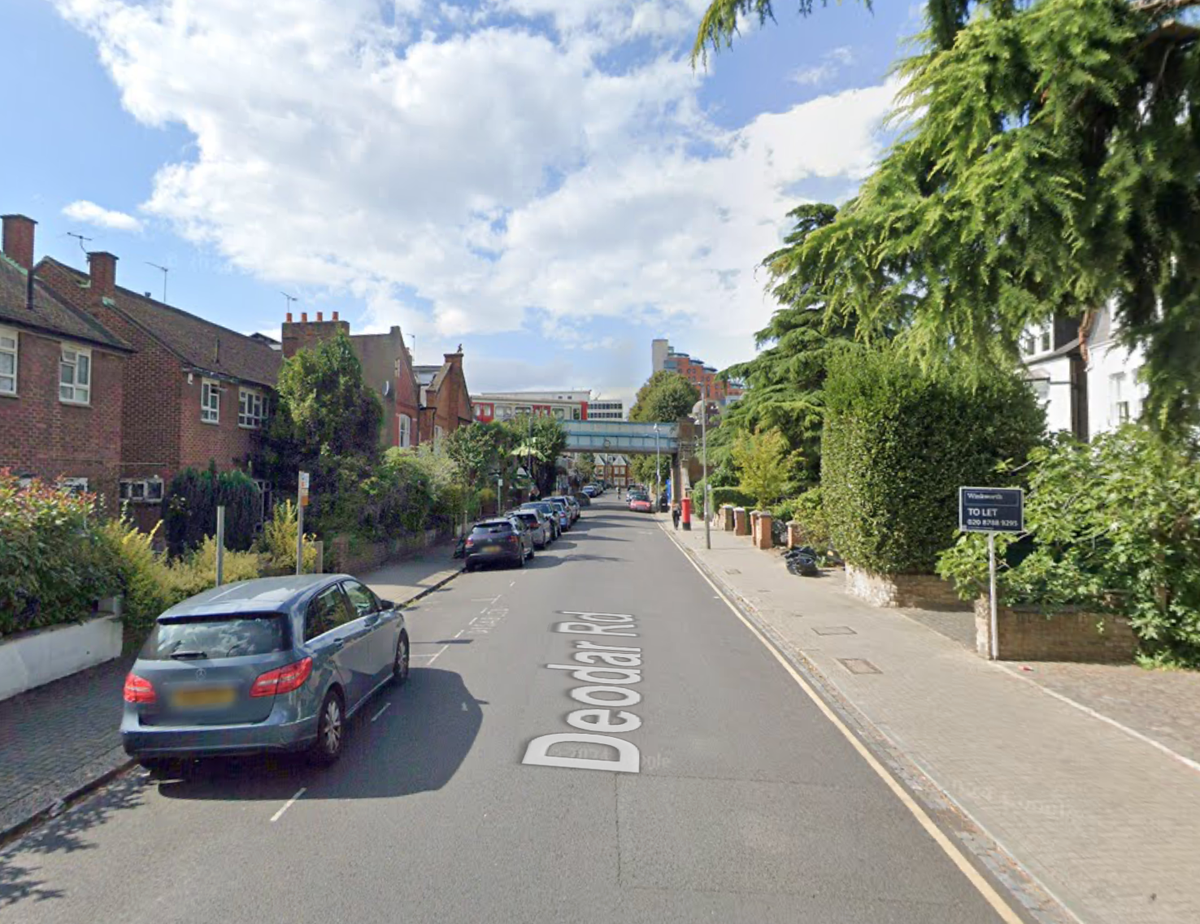
A man has been arrested on suspicion of murder after a 75-year-old man died with stab wounds in Putney, south west London.
The 30-year-old, believed to be known to the victim, was arrested after the elderly man was pronounced dead on Deodar Road at around 3am on Friday.
His next of kin have been made aware although police currently await formal identification. They are currently being supported by specialist officers, the Met Police said.
Detective Superintendent Amanda Mawhinney said: “We are currently supporting the family of a man who was sadly killed in the early hours of this morning.
“I am aware that people in the community may feel shocked following this – we believe this to be an isolated incident and there is no wider threat to the public.
“Although we have made significant progress by making an arrest, I would like to make it clear that our investigation does not stop here.
“We need the local community to help us understand what happened in the early hours of this morning. We are appealing for anyone who was in the area at around 3am and that saw or heard anything unusual to contact us as soon as possible.
“You may notice a higher police presence within the area today whilst we carry out our enquiries. A scene is in place as well as road closures.
“If you feel the need to raise anything with our officers, then please feel free to speak with them whilst they are in the area.”
Anyone with information which could assist with the investigation is asked to call 101 stating CAD721/24JAN.
Alternatively you can contact the independent charity Crimestoppers anonymously on 0800 555 111 or by submitting an online form.
This is a breaking news story. More to follow…
NewsBeat
Judge rejects US mother’s extradition challenge

BBC News
 Dabb, Kory R.
Dabb, Kory R.A judge has rejected a US mother’s challenge to extradition over accusations she murdered two of her children in Colorado and “fled” to London.
Kimberlee Singler’s nine-year-old daughter Elianna and seven-year-old son Aden were found dead on 19 December, 2023 in Colorado Springs.
Prosecutors acting on behalf of US officials said Ms Singler, 36, “fled” the US and was arrested in west London 11 days later.
District Judge John Zani told Westminster Magistrates’ Court he rejected Ms Singler’s challenge against extradition and said the case now passed to the home secretary to decide whether the 36-year-old should be sent back to the US.
Warning: This report contains descriptions of violence against children
In his ruling Judge Zani said he was not convinced that the defendant’s rights, particularly her concerns about prison conditions and a possible life sentence without parole, would be infringed on by extradition.
“I am of the firm opinion that the defendant’s extradition to the United States of America to face criminal prosecution complies with all of her Convention Rights within the meaning of the Human Rights Act 1998,” Judge Zani said.
Ms Singler’s legal team has said she intends to appeal against the judge’s decision.
Previously, the court heard in September that Ms Singler’s alleged crimes were “committed against the backdrop of acrimonious court proceedings” relating to the custody of her children with her ex-husband Kevin Wentz.
Prosecutor Joel Smith said on 19 December 2023 the Colorado Springs Police Department responded to a 911 call reporting a burglary at a Colorado residence at 00:29 local time (06:29 GMT).
When officers arrived at the defendant’s address, they found two dead children and a “blood-stained handgun” which was discovered on the floor of the bedroom.
Mr Smith said DNA tests were carried out on the gun and a knife which revealed the presence of mixed profiles matching the children and Ms Singler.
A third child, who has not been named, was found with a serious injury to her neck. She was taken to hospital and survived.
Mr Smith said Ms Singler blamed her husband for the attack, but it was found he had been driving a “GPS-tracked truck” in Denver, giving what the prosecutor described as a “complete and verifiable alibi”.

In the days that followed, the third child was moved into foster care and, on Christmas Day, she told her foster carer that Ms Singler had been responsible for the attack and had asked her to lie to police, Mr Smith said.
The prosecutor said the girl was interviewed by police on 26 December, during which time she recounted how the attack had unfolded after the defendant guided all three children into their bedroom.
The police investigation then led to a warrant being issued by Fourth Judicial District Court in El Paso County, Colorado, for Ms Singler’s arrest.
Mr Smith said Ms Singler was arrested in the Chelsea area of west London on 30 December.
It is not for the court in London to carry out a criminal trial.
However, in his ruling published on Friday Judge Zani said: “I note that the defendant, through counsel, has clearly stated that her defence to the charges is a total denial of liability.”
Politics
Reform UK pulls ahead of both Labour and Tories as Nigel Farage dominates in new poll
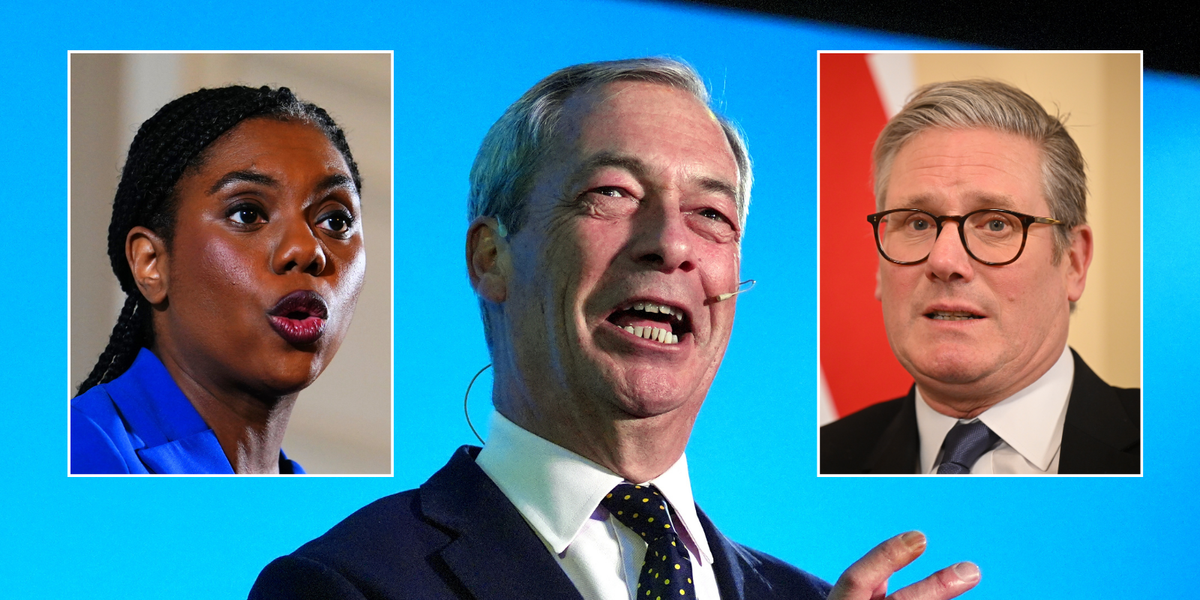
Reform UK has pulled ahead of both Labour and the Conservatives to top a national poll alone for the first time ever.
Fresh data from pollsters at Find Out Now has placed Nigel Farage’s party three points clear of the Tories – while Labour has slipped to a distant third.
Some 26 per cent of Britons would now vote for Reform if a General Election were called tomorrow, the data says – with 23 per cent opting for Kemi Badenoch’s Conservatives, and 22 for Labour.
In a defiant statement quashing calls for a pact between Reform UK and the Tories, the former’s chairman Zia Yusuf said on social media: “No pacts, no deals. Reform is headed for Government.”
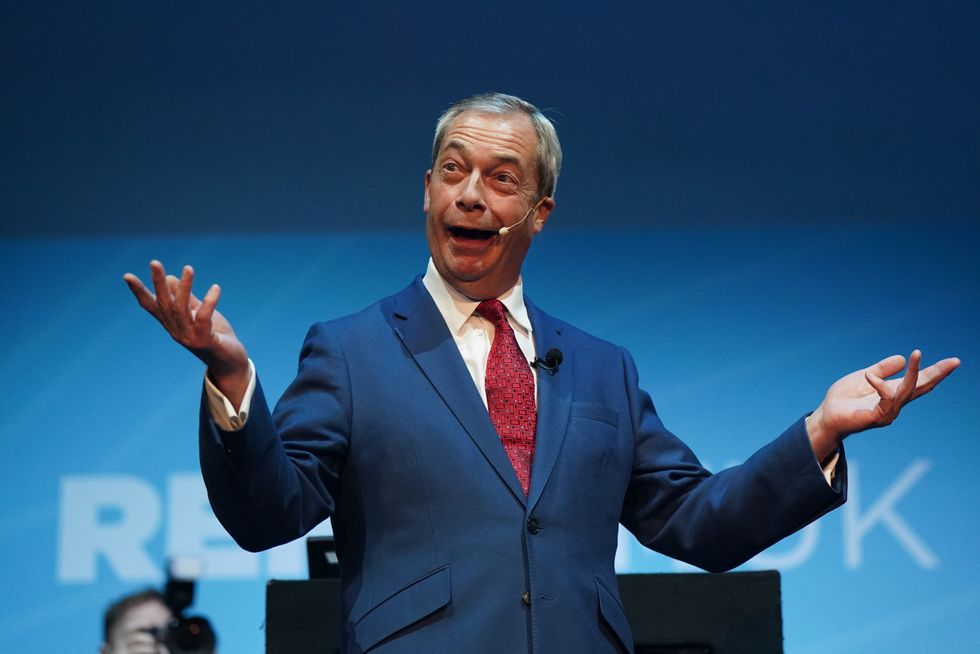
Some 26 per cent of Britons would now vote for Reform if a General Election were called tomorrow
PA
While leader Nigel Farage said: “Reform LEADS for the first time in a national opinion poll. This is just the beginning.”
And Reform’s Great Yarmouth MP Rupert Lowe added: “Reform now in the clear, leading a national opinion poll.
“I am more confident than ever that we will outright win the next general election – it is going to happen. It cannot come soon enough.”
But the Tories have poured cold water on the figures – a spokesman for Kemi Badenoch told GB News: “Polls go up and down and change every week.
LATEST ON REFORM UK:
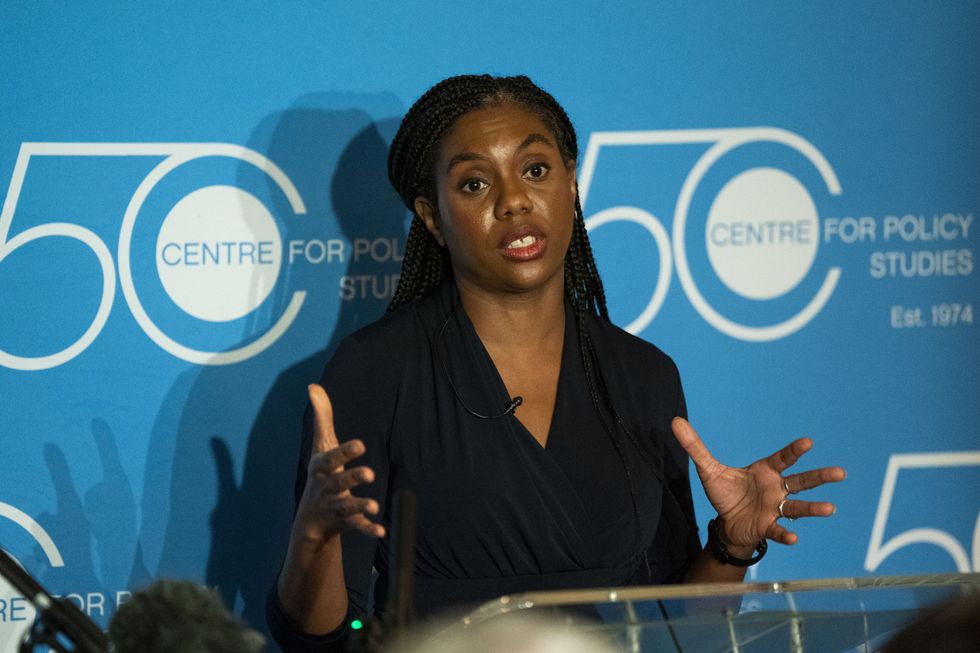
Kemi Badenoch’s Tories have poured cold water on the figures
PA
“We’re focused on what matters – the damage Labour is doing to the economy, our schools and our international standing.”
And Labour has accused the two right-wing parties of “fighting among themselves”.
A Labour source said: “The Labour Government is getting on with delivering the Plan for Change. We’ve been clear from the outset that means taking the tough decisions needed to undo 14 years of Tory chaos and decline.
“While the opposition fight among themselves, the Labour Government is putting in the hard yards to deliver much-needed growth, create more jobs, make people better off by putting more money in people’s pockets, rebuild Britain and get our NHS back on its feet.”
It comes just weeks after Find Out Now placed Reform UK neck-and-neck with Labour – the first time Nigel Farage’s party had topped a national poll.
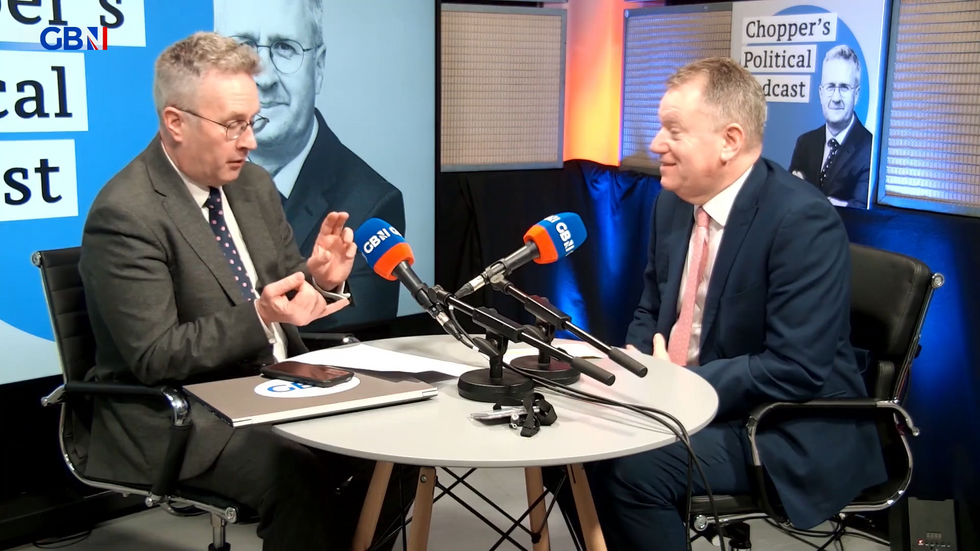
Before the new polling emerged, Tory peer Lord Frost had warned that his party would have to come to some sort of arrangement with Reform
GB NEWS
Back then, Refom and Labour jointly led with a 25 per cent vote share each, with the Conservatives left with 20 per cent.
But after a fortnight of gloomy headlines for the Labour Government, voters appear to be turning away.
Reform UK has gained one percentage point, the Tories three, and the Liberal Democrats one – all while Labour has sunk by three per cent.
Before the new polling emerged, Tory peer Lord Frost had warned that his party would have to come to some sort of arrangement with Reform if neither can come out on top.
And he looks to be vindicated by the data – running the Find Out Now results through an Electoral Calculus projection would see Reform take 170 seats, the Tories 165 and Labour 179, raising the prospect of a Reform-Tory coalition Government.
NewsBeat
Man who racially abused striker banned from football matches

A man has been banned from attending football matches for three years after he racially abused Dutch striker Justin Kluivert.
-

 Fashion8 years ago
Fashion8 years agoThese ’90s fashion trends are making a comeback in 2025
-

 Entertainment8 years ago
Entertainment8 years agoThe Season 9 ‘ Game of Thrones’ is here.
-

 Fashion8 years ago
Fashion8 years ago9 spring/summer 2025 fashion trends to know for next season
-

 Entertainment8 years ago
Entertainment8 years agoThe old and New Edition cast comes together to perform You’re Not My Kind of Girl.
-

 Sports8 years ago
Sports8 years agoEthical Hacker: “I’ll Show You Why Google Has Just Shut Down Their Quantum Chip”
-
Business8 years ago
Uber and Lyft are finally available in all of New York State
-
Entertainment8 years ago
Disney’s live-action Aladdin finally finds its stars
-
Sports8 years ago
Steph Curry finally got the contract he deserves from the Warriors
-
Entertainment8 years ago
Mod turns ‘Counter-Strike’ into a ‘Tekken’ clone with fighting chickens
-
Fashion8 years ago
Your comprehensive guide to this fall’s biggest trends







You must be logged in to post a comment Login